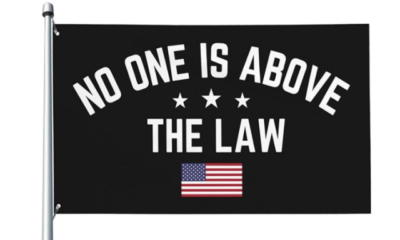Breaking News
Sunshine State Showdown: “No Guns Under 21” Law Challenge Moves Forward
NRA Challenge to Florida’s “No Guns Under 21” Law Will Have its Day in Court
It’s axiomatic: Any law dealing with firearms passed in the immediate wake of a mass shooting will be unconstitutional and will punish the law-abiding while criminals will continue to do as they please. A corollary to that axiom is that the longer any given state attempts to delay any challenge to that law, the quicker it will be struck down when the challenge finally gets heard. That’s because the gun-grabbers know perfectly well that their knee-jerk legislation won’t stand up to any serious legal challenge. With any luck, we’re about to see all of the above play out in real time.
The legislation in question is the knee-jerk ban on gun sales to legal adults aged 18 to 21 that was passed just a few weeks after the massacre at Stoneman Douglas High School. The NRA immediately launched a lawsuit, but over two years later it has only just now cleared the last legal hurdle the anti-gunners could throw in front of it, and now it’s moving forward.
To fully explain what’s happening, I’m going to turn the floor over to the NRA’s first woman president Marion Hammer–never has anyone been more aptly named, and that is a compliment–as well as a news piece that appeared in The News Service of Florida (reprinted with permission). Take it away, Marion!
____________
After two years of stalling by the Florida Solicitor General’s Office, it looks like we will finally get our day in court. Having run out of preliminary, technical motions, the State will finally have to justify its continuing violation of the constitutional rights of law-abiding adults age 18-20. Hopefully the courts will not allow anti-gun politics to further delay this case.
Permission to reprint has been granted
JUDGE CLEARS WAY FOR CHALLENGE TO GUN LAW
Jim Saunders
TALLAHASSEE — A federal judge has refused to dismiss the National Rifle Association’s challenge to a 2018 state law that blocked people under age 21 from buying guns.
Attorney General Ashley Moody’s office argued that Chief U.S. District Judge Mark Walker should dismiss the case, which challenges a law that the Legislature and then-Gov. Rick Scott approved after a gunman killed 17 people at Marjory Stoneman Douglas High School in Parkland.
But Walker, in an eight-page decision Friday, denied the state’s request to dismiss the case, which is scheduled to go to trial in January. Walker made clear that he was not ruling on the NRA’s underlying arguments that the law violates constitutional 2nd Amendment and equal-protection rights — only that the case should be allowed to move forward.
“It is important to keep in mind the narrow issue before the court at this stage of the proceedings. This court is not asked to, and does not, decide whether (the law) is constitutional. Rather, the question is whether plaintiffs’ complaint contains ‘enough facts to state a claim to relief that is plausible on its face,’” he wrote, quote a legal precedent.
The law, which the Legislature rushed to pass after the Marjory Stoneman Douglas massacre, says that people under age 21 cannot buy firearms, including rifles and shotguns. A federal law already banned licensed firearms dealers from selling handguns to people under 21, and the state law broadened that to also prevent private sales of handguns to people under 21, according to court documents.
“Consequently, 18-to-20-year-old adult citizens in Florida are now prohibited from purchasing any firearm from any source,” Walker wrote.
In a Jan. 21 motion to dismiss the case, attorneys in Moody’s office argued that the measure “follows a long tradition of laws conditioning the purchase of firearms on the purchaser’s having obtained the traditional age of majority — 21 years of age.” Also, the motion said that while the law prevents people ages 18 to 20 from buying guns, it doesn’t prevent them from having guns that, for example, they received as gifts.
“Florida’s age qualification is reasonably calculated to advance the state’s interest because it applies only to the purchase of firearms,” the motion said. “Any law-abiding person over the age of 18 may gift, loan, or allow the use of a firearm to an otherwise qualified person over the age of 18, who may in turn keep and use that firearm for any lawful purpose, including home defense, hunting, sport and practice shooting. The sale-gift distinction is aimed at a uniquely dangerous problem — the purchase of firearms by 18-to-20-year-olds absent the judgment of a parent, guardian, or other law-abiding adult that the individual is prepared for the responsibility of gun ownership.”
But in a memorandum filed April 17 opposing the motion to dismiss, NRA attorneys described the law as “draconian” and said it infringes on the constitutional rights of people ages 18 to 20 to keep and bear arms. Also, NRA attorneys contended that the law is not the “least restrictive alternative to achieve a compelling government interest.”
“The ban prevents the ability of all 18-to–20-year-olds to purchase firearms to exercise their Second Amendment rights — even for self-defense in the home,” the NRA memorandum said. “If the compelling interest is limiting gun violence on school campuses, the ban is not the least restrictive means because the ban encompasses all 18-to-20-year-old adult Floridians, including those who no longer have any connection to school campuses. Nor have defendants demonstrated the unavailability of less restrictive alternatives.”
Former Marjory Stoneman Douglas student Nikolas Cruz was 19 at the time he was charged with using a legally purchased semi-automatic rifle to kill 17 students and faculty members at the school. Cruz continues to await trial.
The NRA filed the lawsuit immediately after the law was passed in 2018, but the case has moved slowly, at least in part because of a dispute about an NRA attempt to allow two opponents of the law to participate in the case anonymously — an idea that ultimately was dropped, with a named plaintiff, Radford Fant, joining the case.
While Walker denied the state’s request to dismiss the lawsuit Friday, he agreed to a request to dismiss Moody as a defendant. Florida Department of Law Enforcement Commissioner Rick Swearingen remains a defendant.
-

 Gun Rights2 months ago
Gun Rights2 months agoDOJ Tells Anti-Gun Illinois to Stop Eating Paint
-

 Smells Like Infringement1 month ago
Smells Like Infringement1 month agoMarriage Made in Hell: Let’s NOT Merge ATF & DEA
-

 Sh*t Anti-Gunners Say3 weeks ago
Sh*t Anti-Gunners Say3 weeks agoGreat Big Gobs of Greasy, Grimy Gavin Scum! Newsom Now Says He Respects the 2A
-

 Gun Rights2 months ago
Gun Rights2 months agoRELOADED! NRA 2.0 Comes Out Swinging in 2025
-

 Gun Rights1 week ago
Gun Rights1 week agoFind Someone Who Loves You As Much As Democrats Love Mass Shootings
-

 Guns Save Lives1 month ago
Guns Save Lives1 month agoIndependence Day Couldn’t Have Happened Without Armed Citizens
-

 2A's Lighter Side4 weeks ago
2A's Lighter Side4 weeks agoHappy 50th, Burris Fullfield (Here Come the Spanks and Pinches)!







